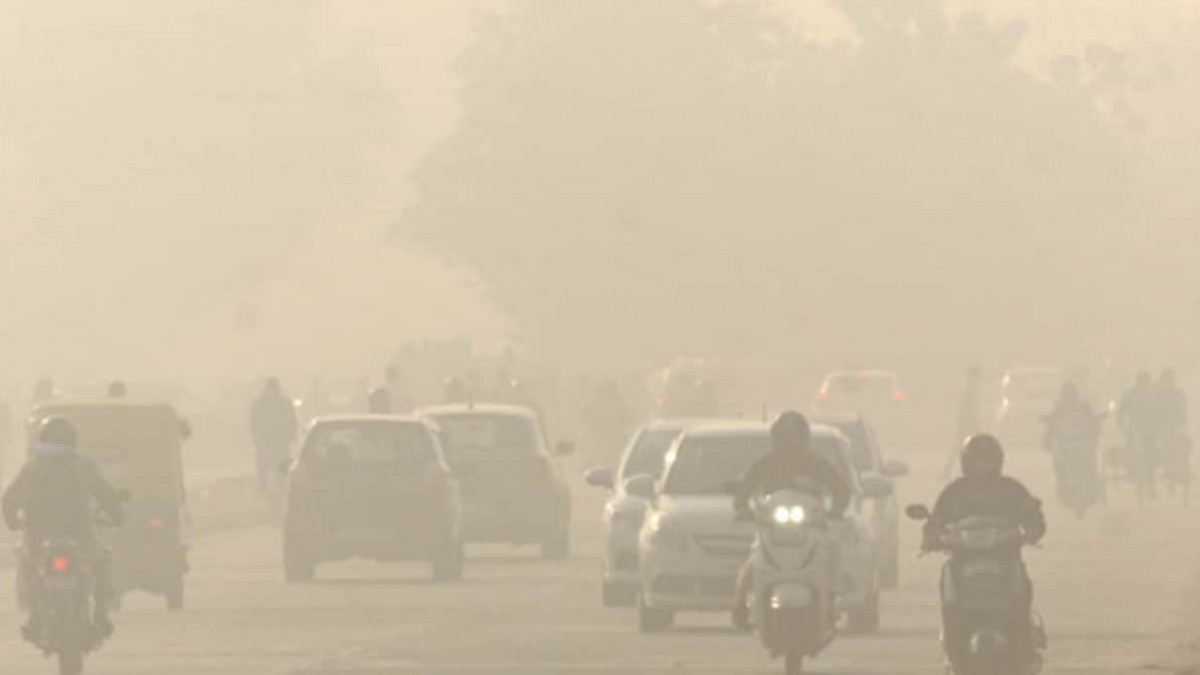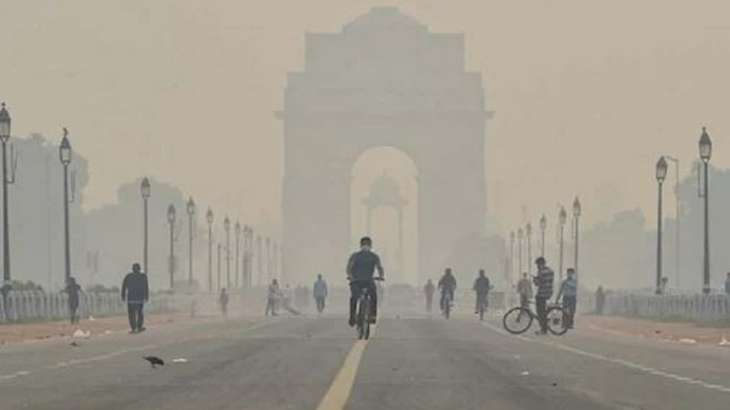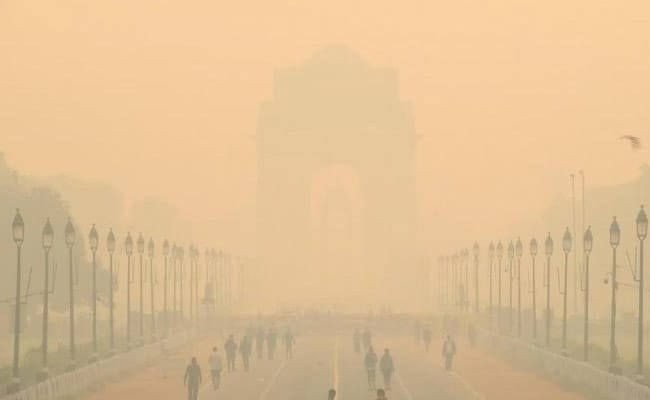With the Public Health Emergency being declared by the Environment Pollution (Prevention and Control) Authority this Saturday, it is evident what kind of hazardous air people are left with to breathe in.
The National Capital’s air quality has always been an issue of significant concern. At this time of the year, Delhi is rendered with a smoke blanket all over. Unfortunately, Delhi being a gas chamber, has now become a common phenomenon.
This is not the first time that the air quality is at such hazardous levels. It has happened in the past and will also occur in the future if no stern actions are taken in place.
Diwali, a beautiful blend of festivities, sweets, lights, and shine brings along with it smog and air pollution every year, leading to more infections and diseases.
This is not how a country’s capital should look like, but sadly, the truth cannot be ignored. While there is still time for the air to be breathable and air quality reaching moderate levels, it is essential to take care of our health.

The Air Quality Index in Delhi entered the Severe Plus category and no doubts, experts are advising Delhiites to protect themselves. The need of the hour is to take some precautionary measures that can help one from falling ill.
These measures might help you to protect yourself from the harmful effects of the climatic emergency Delhi is facing:
Outdoor measures:
1. Say NO to Outdoor activities-
● Limit outdoor activities as much as possible. If necessary, take appropriate precautions mentioned below
● Though morning walks are an essential and daily routine for people, right now is not the time. It is strictly advisable to refrain from walks as the bad air has a lot of pollutants. These pollutants affect our body, especially heart patients, pregnant females, and children
2. Wear Masks-
● A key and direct way to avoid any bad air getting in our system is to wear the right mask. Stepping out either for work or any other outdoor visit makes us prone to the hazardous pollutants. Thus, donning the correct pollution health mask is essential
● Ordinary masks are not as effective, which is why specialized masks such as N99 and N95 should be the first choice. Though these are on the expensive side of the market, they are also way more effective against pollution. It is better not to compromise when it comes to health
3. Stay covered- If going outside, stay covered. Wear sunglasses to protect eyes from the air particles.

4. Water Sprinklers- Sprinkle water in the morning and evening outside the houses. This helps prevent air pollution from the suspended dust particles from air conditioners and other electronic appliances.
Indoor measures:
1. Indoor Plants- Air pollution has a severe impact on the indoors as well. Indoor plants can help purify the air inside and decrease pollution. Bringing greenery into your house will make you breathe better indoors. Some of the plants that can be brought in the house are:
● Aloe Vera & Spider Plant: These plants have the quality to suck the pollutants and make air levels in the house better.
● Other plants that can also help for the cause are Bamboo Palm, Snake plant, and Warneck Dracaena
2. Things to avoid- Air fresheners contain large particulate matter, which needs to be avoided. Also, burning candles is not advisable.
3. Relieving Respiratory distress-
● People having problems with respiration can inhale steam with a few drops of lavender essential oil. This is an easy and effective way to remove mucus and clear congestion
● For troubled breathing, one can get relief by keeping a hot water bag on the chest
● For any throat congestion instance, gargle with warm water or lightly salted black tea twice daily
4. Stay hydrated- With such alarming conditions, it is advisable to drink plenty of water (lukewarm is better), preferably more than usual. One can also add in vegetable and fruit juices to stay hydrated.
5. Dietary modifications-
● It is advisable to eat Vitamin-C rich foods such as amla, guava, lemon, mausambi, oranges, etc.
● Foods like almonds, avocadoes, peanuts, bran oil, salmon, pine nuts, Brazil nuts, sunflower seeds which are rich in Vitamin-E, a reliable source of antioxidants should also be included
● Beta Carotene, the precursor of Vitamin A, also exhibits antioxidant properties and should be added in the diet. Examples include dark green leafy vegetables, orange, and yellow-coloured vegetables and fruits
● Omega 3 fatty acid-rich foods such as fatty fish (salmon and mackerel) cod liver oil, flax seeds, chia seeds, walnuts, etc. are also advisable.

6. Anti-allergic foods-
● Foods such as turmeric milk, green tea, herbal tea (including ginger, black pepper, cloves, tulsi), are natural bronchodilators. They help improve respiratory health.
● Natural anti-allergics like kiwi, onion, peppers, pineapple, and fatty fish serve a great purpose as well
● One can also soak dry fruits such as almonds, walnuts, figs, and munakka, overnight and consume on an empty stomach
7. Vaccinations- People suffering from medical conditions such as asthma, COPD, Cardiovascular disease, cancer, transplant patients are vulnerable to such climatic emergencies. Thus, it is advisable to get them vaccinated.
Consult a doctor:
Bad air quality exposures might lead to cough, throat irritation, and even spreading severe health risk. If you feel any of these symptoms like coughing, irritation in the eyes and nose, sore throat, asthma or wheezing, and tiredness; consult a doctor as soon as possible.

